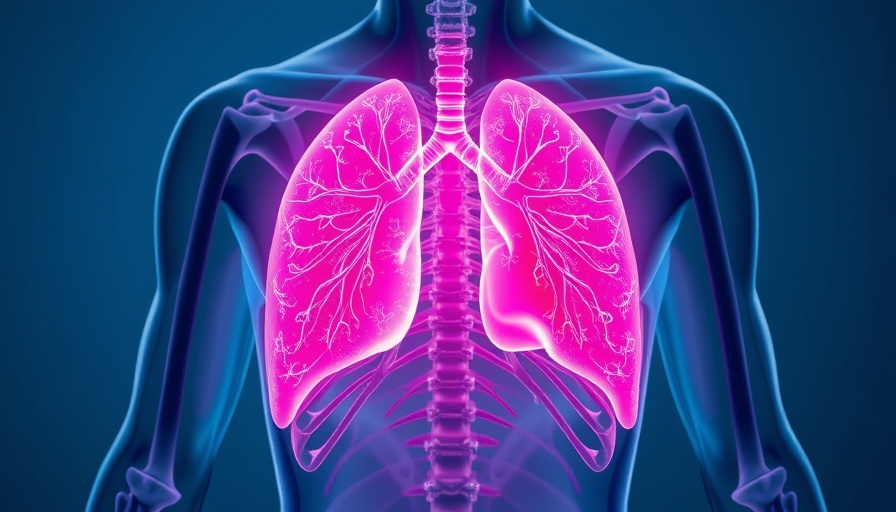
The Hidden Microbial Wars in Our Lungs
In the invisible realm of our lungs, a quiet but ferocious battle takes place. Researchers have unveiled how Pandoraea bacteria, often considered mere threats, employ innovative strategies to thrive in iron-poor environments like the human body. This not only emphasizes the nuanced roles these microbes play but also the broader implications for our health.
These bacteria craft compelling tools—specifically, newly identified molecules known as Pandorabactin A and B—which allow them to snatch iron from their surroundings. This is vital as iron is critical for bacterial survival, participating in essential processes like respiration. It turns out that these crafty pathogens don’t just survive; they also use their iron-wrestling skills to sabotage competitor bacteria, ultimately altering the microbial communities crucial to our health.
The Evolutionary Implications of Iron Theft
Competition for resources is a central theme in nature, and iron is no exception. For many bacteria, acquiring iron—especially in environments like the human lung—is a struggle. Other known bacteria employ similar methods of iron acquisition using siderophores, though Pandoraea does it in a more advanced and potentially destructive way. By upending the microbial communities, they can enhance their survival while jeopardizing others, leading to significant shifts in the lung microbiome, particularly among patients with conditions such as cystic fibrosis.
Understanding Pathogens Beyond Their Threats
For too long, Pandoraea and similar pathogens were viewed solely through the lens of their potential to cause harm. As noted by Elena Herzog, a doctoral researcher from the Leibniz Institute, these microorganisms harbor a double-edged sword; they possess both pathogenic and beneficial properties. This complexity invites a deeper exploration into how we might leverage our understanding of these bacteria for new treatments or management strategies in infections.
A Broader Look at the Microbiome in Health
The findings surrounding Pandoraea bacteria serve as a reminder of the intricate connections within the lung microbiome. Our understanding of these communities reinforces the idea that our health is influenced not just by human cells but also by an ecosystem of microbial interactions. By learning more about how these pathogens function, we can devise innovative approaches to combating chronic lung diseases and infections.
Future Directions in Bacterial Research
As we dive deeper into the study of Pandoraea bacteria and their iron-acquisition mechanisms, implications for public health and medical treatment loom large. Future investigations could aim at harnessing these discoveries to develop new antibiotics or therapies that hinder these iron-thieving strategies, potentially leading to more effective treatments for infections caused by antibiotic-resistant bacteria.
Living in Dallas: The Intersection with Microbial Research
As a city rich in healthcare innovation, residents of Dallas have a unique chance to engage in discussions about the implications of frontier medical research on their own health. Understanding the battles occurring within our microbiomes could lead to deeper insights into personal health management and community wellness. Engaging with local lifestyle management clinics that focus on cutting-edge research may pave the way for improved health strategies crafted right here in Dallas.
With the evolving understanding of bacteria like Pandoraea, it invites an opportunity for the region to become a leader in microbiological research and education. As Dallas embraces such advancements, discussions around the living environment—including social factors, lifestyle choices, and overall wellness—are imperative. This knowledge not only informs health decisions but also how living in Dallas, with its contemporary lifestyle, enriches our experiences.
Conclusion: A Call to Explore
The world of microbial research is rapidly evolving, revealing complex facets that influence our everyday health. As we gain insights into the ramifications of bacteria like Pandoraea, it becomes crucial to engage with the implications for our lives. By exploring these developments, especially in a vibrant city like Dallas, individuals can take proactive steps towards better health outcomes and community well-being. Join local discussions, follow lifestyle influencers, and tap into wellness clinics that are anchored in cutting-edge research to make informed choices for a healthier future.
 Add Element
Add Element  Add Row
Add Row 



Write A Comment